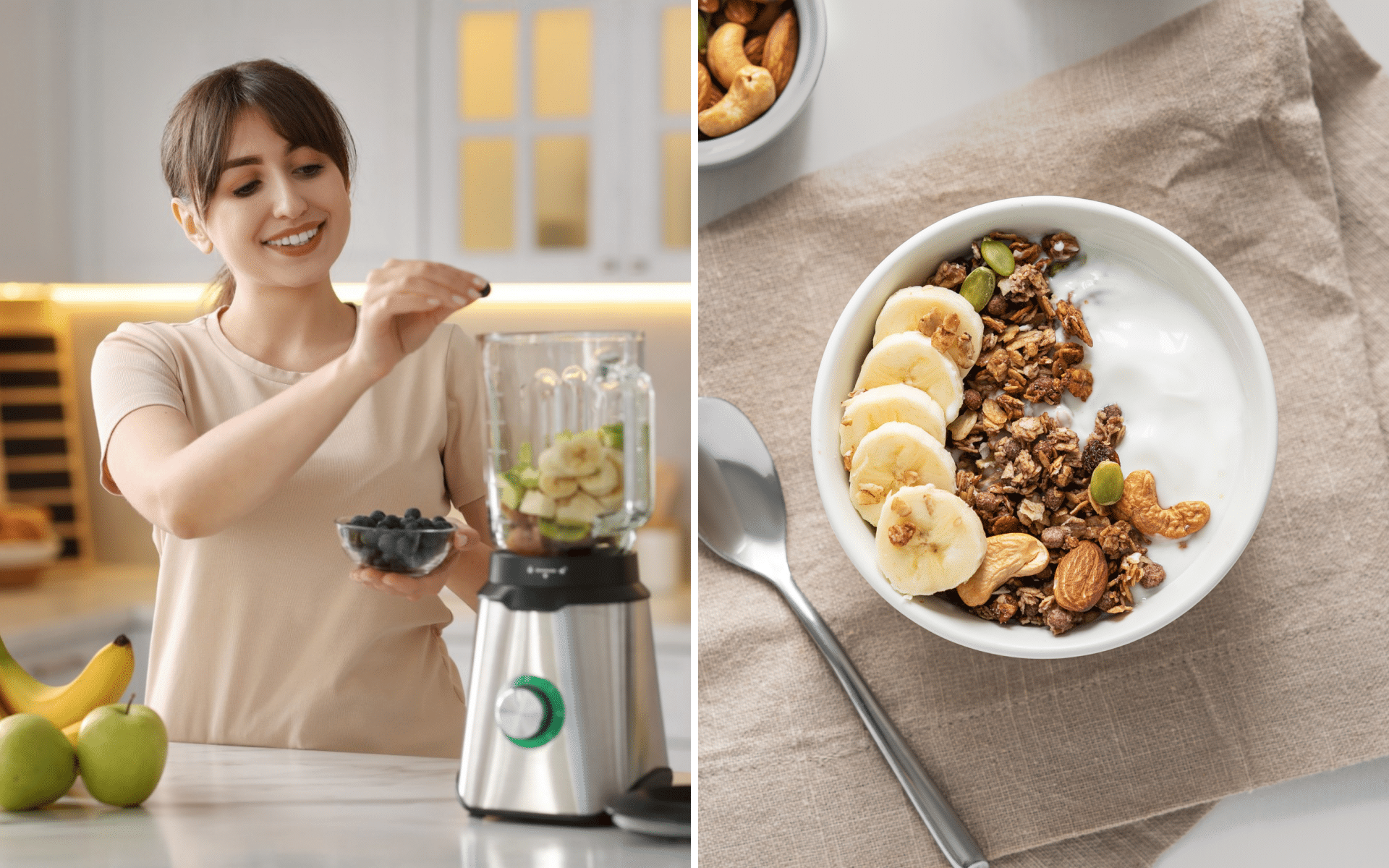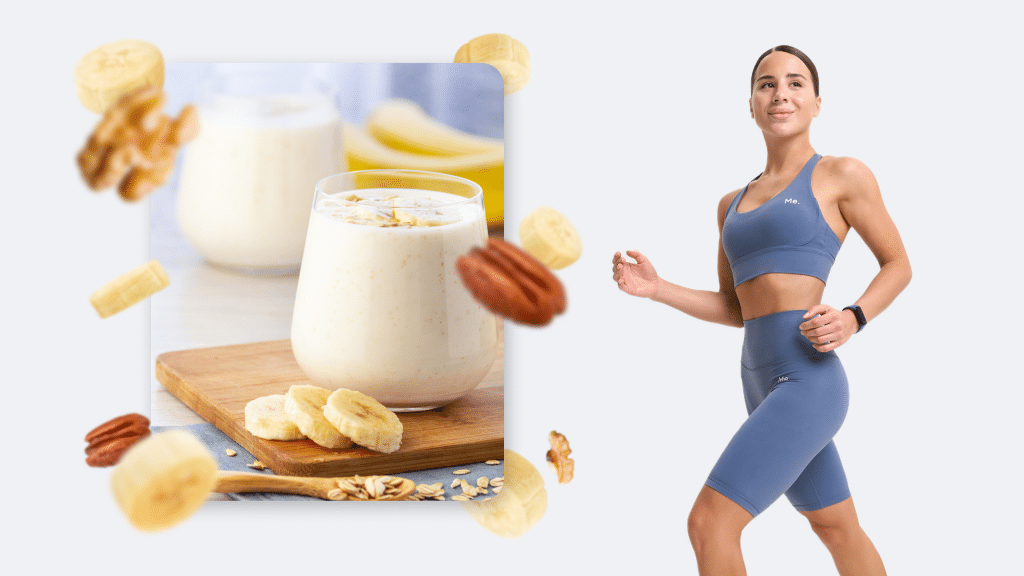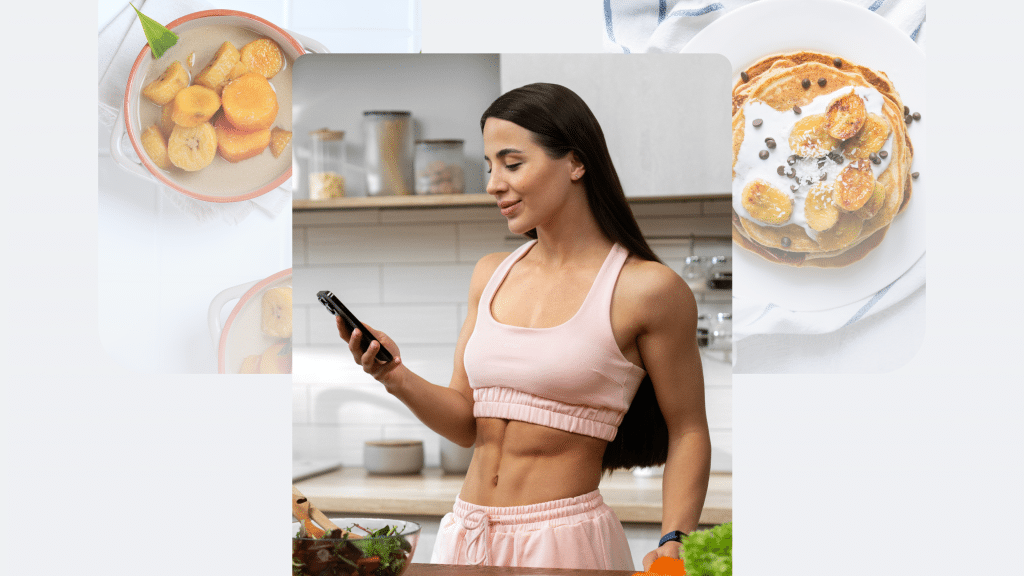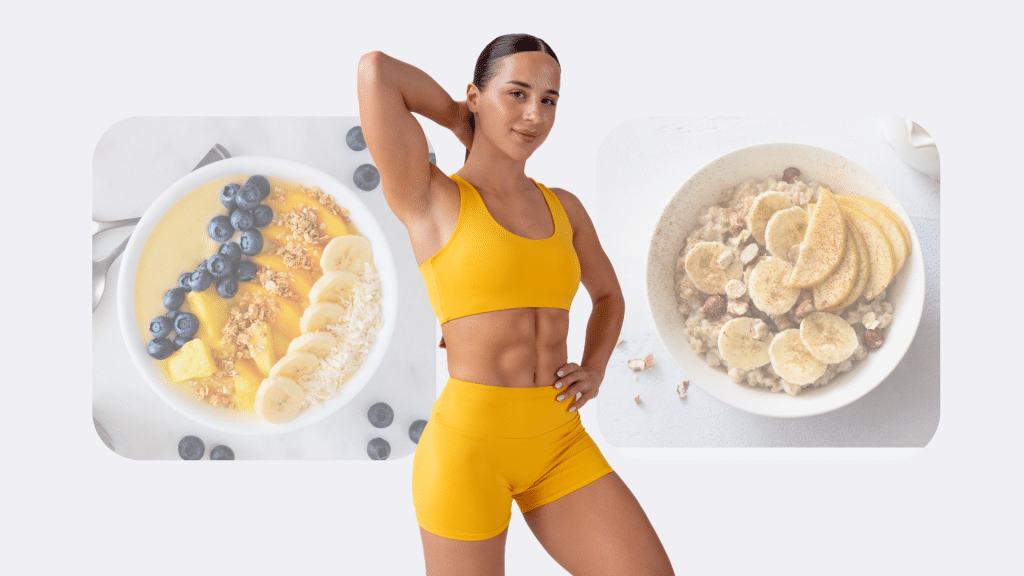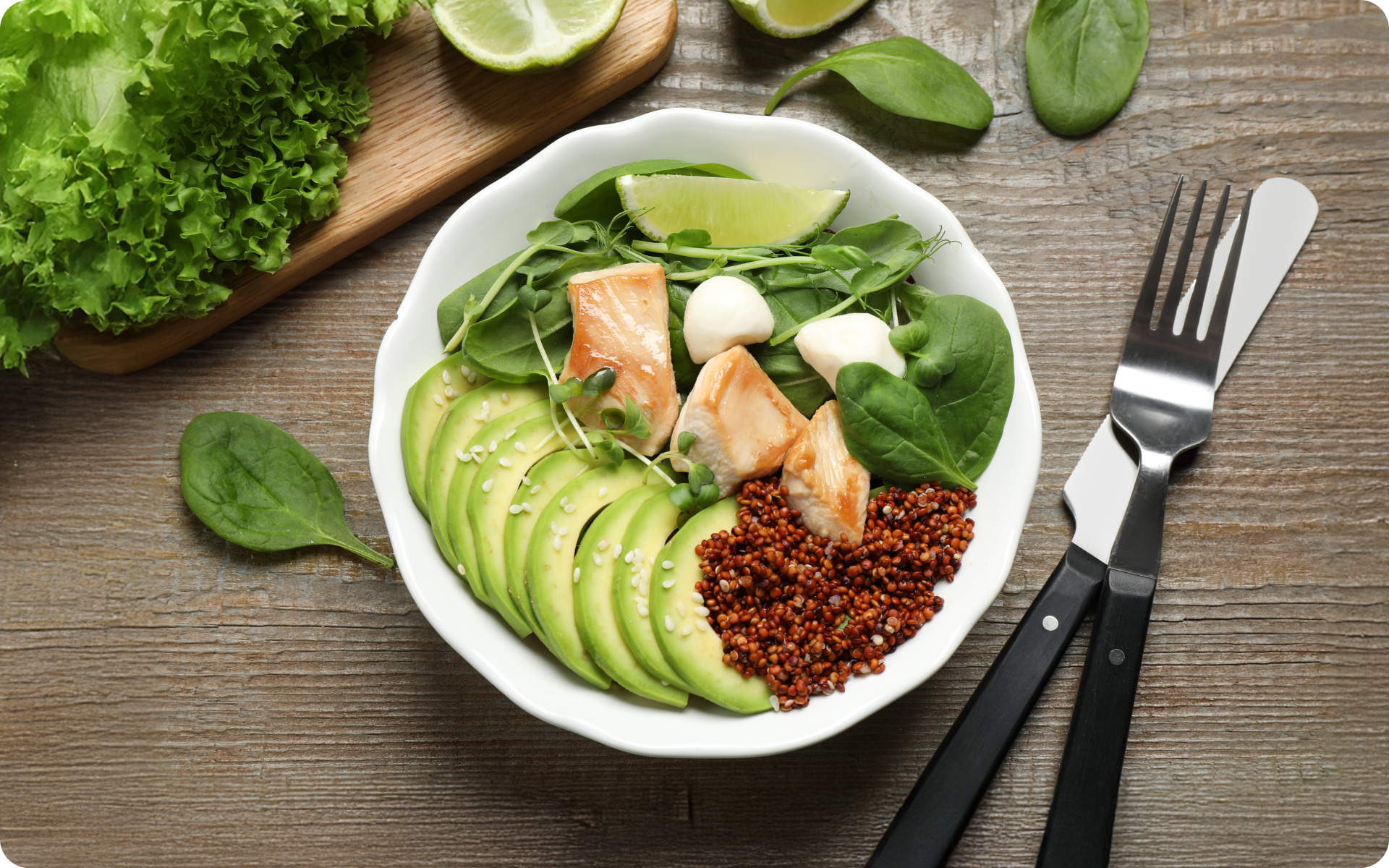You may see a lot of people eating bananas regularly. They put them in oatmeal, salads, milkshakes, bread, smoothies, and more. But what happens to your body if you eat 2 bananas a day for 30 days?
Bananas are a nutritional powerhouse. They are a portable source of quick energy and can help you feel full and satisfied, support digestive health, and help with weight management. These fruits are an excellent source of potassium, which can help maintain fluid balance.
Does this mean you can eat countless bananas every single day? And what are the consequences?
In this guide, we’ll answer these questions and more, providing you with a detailed look at the pros and cons of consuming bananas daily.
What Is a Reason for Eating 2 Bananas a Day for 30 Days?
Bananas are one of the most versatile fruits. The riper they are, the sweeter the taste. You can add them to pancakes, muffins, energy bites, bowls, toast, pudding — the possibilities are endless.
Eating 2 bananas a day for 30 days can be a healthy choice for most people. The fruits contain essential nutrients such as dietary fiber, magnesium, and vitamins B6 and C. They are relatively low in calories and incredibly filling.
The average adult requires approximately 4,700 mg of potassium a day. A medium-ripe banana provides around 450 mg (1, 2). It can help keep your bowels healthy and blood pressure stable thanks to its fiber, resistant starch, and potassium content.
Bananas are also a dense source of energy. They can get you through your morning routine. The energy they provide can keep you alert and focused, so you can maximize your productivity.
What Is the 30-Day Banana Diet?
The banana diet is a popular fad diet that originated in Japan. It gained momentum in the 2000s despite the lack of research on it. It’s simple, satisfying, and keeps you full. You start your day with a couple of bananas and room-temperature water.
Your lunch and dinner should include a variety of fruits, vegetables, protein, complex carbs, healthy fats, and fiber. Other than the stipulated bananas in the morning, it’s just a general, healthy, balanced diet. Consume foods in moderation or until you are 80% full. The diet advises you to avoid caffeine and alcohol.
You should drink healthy beverages such as tea, eat balanced meals, and avoid snacks after 8 pm. The diet encourages you not to eat right before sleep to prevent bloating, weight gain, and high blood sugar.
Read more: The Banana Diet: Pros, Cons, and Everything Else You Need to Know.
What Happens If I Eat Two Bananas a Day for a Month?
Including bananas in your diet can nourish your gut bacteria, curb cravings, and support heart health. However, to reap the benefits, these fruits should be a part of a varied and nutrient-rich balanced diet.
Are you unsure where to begin when changing your diet? The BetterMe app can simplify the process for you. Use it to keep track of your macro and micronutrient intake, find recipes, and tailor a workout plan. The app can address different requirements such as keto, meal planning, and weight loss.
Whether you’re a workout beast or just a beginner making your first foray into the world of fitness and dieting – BetterMe has a lot to offer to both newbies and experts! Install the app and experience the versatility first-hand!
Here’s what may happen if you eat two bananas every day for a month:
- Bananas Are a Prebiotic and Can Promote Gut Health
Bananas provide resistant starch and fiber that can support a healthy gut. They add bulk to your stools, may reduce bloating, and can ease constipation (3, 4, 5). Fiber and resistant starch also provide nourishment for the friendly bacteria in your digestive tract.
Their low acidity may make them gentle on the stomach, particularly for those with gastroesophageal reflux disease (GERD) (7).
- The Resistant Starch Can Help Control Appetite
Green bananas have more resistant starch and soluble fiber to keep you satiated for longer. You may not need as many snacks to make it through the day and you probably won’t be so hungry that you’re tempted to overeat at your next meal.
As these fruits are relatively sweet, they can influence your mood and satisfy sweet cravings. You may feel more satisfied and reduce emotional eating. Eating more fruits and vegetables in general may be associated with better mental health (9).
Read more: Are Bananas Good for Weight Loss? Peeling Away the Myths of the Yellow Fruit.
- They Give You a Cholesterol and Fat-Free Source of Energy
The main sources of sugar in bananas are natural sugars such as glucose, sucrose, and fructose. They give you a substantial boost of energy, along with electrolytes (potassium), which makes them a perfect snack before or after a workout.
Overly ripe bananas are often sweeter than under-ripe bananas. However, they are easier to digest, which makes them a great choice for a quick burst of energy before physical activity.
On the other hand, unripe green bananas can keep you satiated for longer and may help with blood sugar control as they have more resistant starch. Resistant starch acts similarly to fiber in the digestive tract.
- Can Reduce the Risk of Anemia
Bananas contain a small amount of iron, vitamin C, and vitamin B6. The body needs these nutrients to produce red blood cells, antibodies, and fat metabolism.
Consuming 2 bananas a day for 30 days can contribute to the necessary iron for anemic patients, but it’s not a substitute for supplements or other iron-rich foods as recommended by your healthcare provider (10).
If you wish to free yourself from all the extra pounds that have been weighing you down for way too long, start using the BetterMe: Health Coaching app and overhaul your entire life!
- Could Decrease Stress and Help You Sleep Better
Bananas have a number of substances that might help curb stress — one of them is vitamin B9, which is also known as folate. Bananas are also rich in vitamin B6. Studies have suggested that B vitamin supplementation may benefit mood and stress (11).
Bananas are also rich in tryptophan, which can boost sleep quality. It is a precursor for the neurotransmitter serotonin, which plays a role in both sleep and mood (12, 13).
- Can Have a Positive Impact on Your Skin
Bananas are popular fruits for natural skincare. They contain vitamin C, which can promote collagen production (14).
Potassium in bananas can also help with moisturization and hydration. Due to the potent antioxidant compounds, these fruits may help reduce skin dryness and give it a healthy glow. Eating a healthy balanced diet that includes plenty of fruits and vegetables, including bananas, is generally believed to be beneficial for skin health and appearance.
We’ve talked more about eating 2 bananas a day benefits in a separate article. Our previous article covers everything you need to know about losing weight with bananas.
What if I Eat Only Bananas for a Month?
Quantity and proportion matter. Eating too much of anything, even bananas, can be unhealthy. Your diet should include a balance of nutrients and a variety of foods.
Otherwise, you may experience:
- Nutritional deficiencies
- Compromised immune system
- Weak bones and muscles
Is There a Negative Side to Eating Bananas?
Bananas are generally safe for most people. However, eating too many may cause blood sugar spikes in people with diabetes or insulin resistance.
In addition, the extra calories and sugar add up over time, and you may start to gain weight if you don’t consider how the calories from bananas fit into your overall daily intake. For example, eating 6 average bananas a day provides anywhere from 600 to 700 calories. Excessive amounts can make it difficult to reach a caloric deficit.
Bananas are also high in potassium, which is a benefit for most people. However, some people with kidney disease may need to limit the amount of potassium they consume.
If you have any health conditions that affect your dietary needs, talk to your healthcare provider to get individualized advice. To learn more about the 13 side effects of eating too many bananas, check out our in-depth article on the topic.
What Is the Banana Trick to Empty the Bowels?
The “banana trick” is a popular practice that looks like this:
- Choose ripe bananas: Look for a yellow banana with brown spots. The skin feels soft to the touch, but the fruit holds its shape.
- Eat two bananas: Eat the bananas for breakfast or as a snack.
- Stay hydrated: Drink plenty of water or a cup of tea during the day.
- Be consistent: The fruit should be a regular part of your diet.
We’ve talked more about the 2 bananas a day weight loss strategy in another article. If you’re curious about the banana trick for weight loss, check out our earlier article.
Just one medium banana provides approximately 10% of the daily recommended fiber intake. However, you still need fiber from other foods such as legumes, vegetables, and whole grains. Include bananas in various dishes such as oatmeal or a banana smoothie for weight loss. No. An average banana contains approximately 15 g of sugar, so it should fit well within the daily sugar requirements for most people. It may be. Bananas contain vitamin C and potassium, which could support collagen production and improve skin hydration. The tryptophan in bananas may help you sleep better, particularly if you have difficulty getting good-quality shut-eye. Frequently Asked Questions
Does 2 bananas a day provide enough fiber?
Is a banana a day too much sugar?
Is eating bananas good for your skin?
Why should you eat a banana before bed?
The Bottom Line
Consuming bananas in moderation can offer a range of benefits. They can be good for digestion, weight management, energy, mood, and your skin. However, bananas alone won’t provide sufficient nutrients. You need to eat balanced meals and a variety of foods to avoid nutrient deficiencies.
DISCLAIMER:
This article is intended for general informational purposes only and does not serve to address individual circumstances. It is not a substitute for professional advice or help and should not be relied on for making any kind of decision-making. Any action taken as a direct or indirect result of the information in this article is entirely at your own risk and is your sole responsibility.
BetterMe, its content staff, and its medical advisors accept no responsibility for inaccuracies, errors, misstatements, inconsistencies, or omissions and specifically disclaim any liability, loss or risk, personal, professional or otherwise, which may be incurred as a consequence, directly or indirectly, of the use and/or application of any content.
You should always seek the advice of your physician or other qualified health provider with any questions you may have regarding a medical condition or your specific situation. Never disregard professional medical advice or delay seeking it because of BetterMe content. If you suspect or think you may have a medical emergency, call your doctor.
SOURCES:
- Potassium Fact Sheet for Consumers (2021, ods.od.nih.gov)
- Bananas (harvard.edu)
- Study of prebiotic properties of selected banana species in Thailand (2020, nih.gov)
- Effects of Banana Resistant Starch on the Biochemical Indexes and Intestinal Flora of Obese Rats Induced by a High-Fat Diet and Their Correlation Analysis (2021, nih.gov)
- Combinations of laxatives and green banana biomass on the treatment of functional constipation in children and adolescents: a randomized study (2019, nih.gov)
- Health Benefits of Green Banana Consumption: A Systematic Review (2019, nih.gov)
- Functional Food in Relation to Gastroesophageal Reflux Disease (GERD) (2023, nih.gov)
- The banana project: a qualitative study of caregivers’ and teachers’ experiences of preschool children participating in a free banana school fruit scheme in rural Tanzania (2022, nih.gov)
- Fruit and Vegetable Intake and Mental Health in Adults: A Systematic Review (2020, nih.gov)
- The Effectiveness Of Giving Angkak And Bananas Against Anemia In Children (2022, ijhp.net)
- A Systematic Review and Meta-Analysis of B Vitamin Supplementation on Depressive Symptoms, Anxiety, and Stress: Effects on Healthy and ‘At-Risk’ Individuals (2019, nih.gov)
- The impact of tryptophan supplementation on sleep quality: a systematic review, meta-analysis, and meta-regression (2022, nih.gov)
- A systematic review of the effect of L-tryptophan supplementation on mood and emotional functioning (2021, nih.gov)
- The Roles of Vitamin C in Skin Health (2017, nih.gov)
